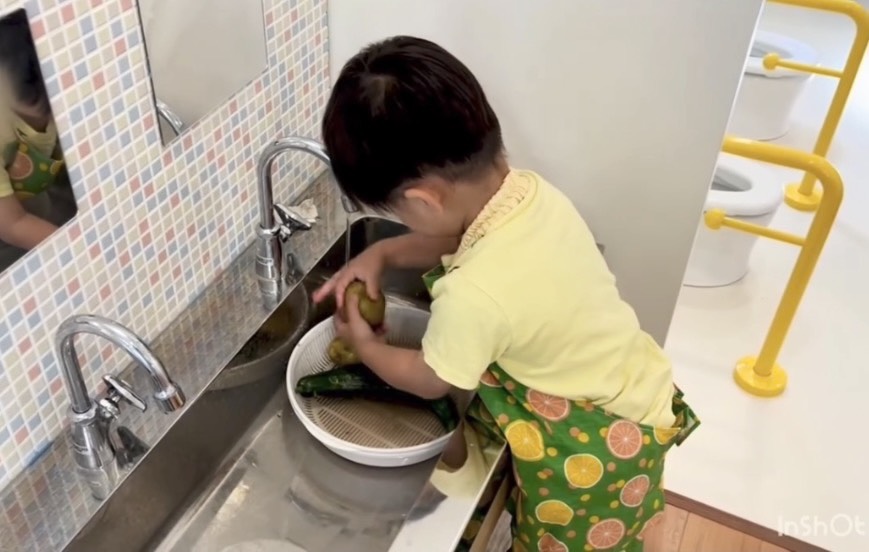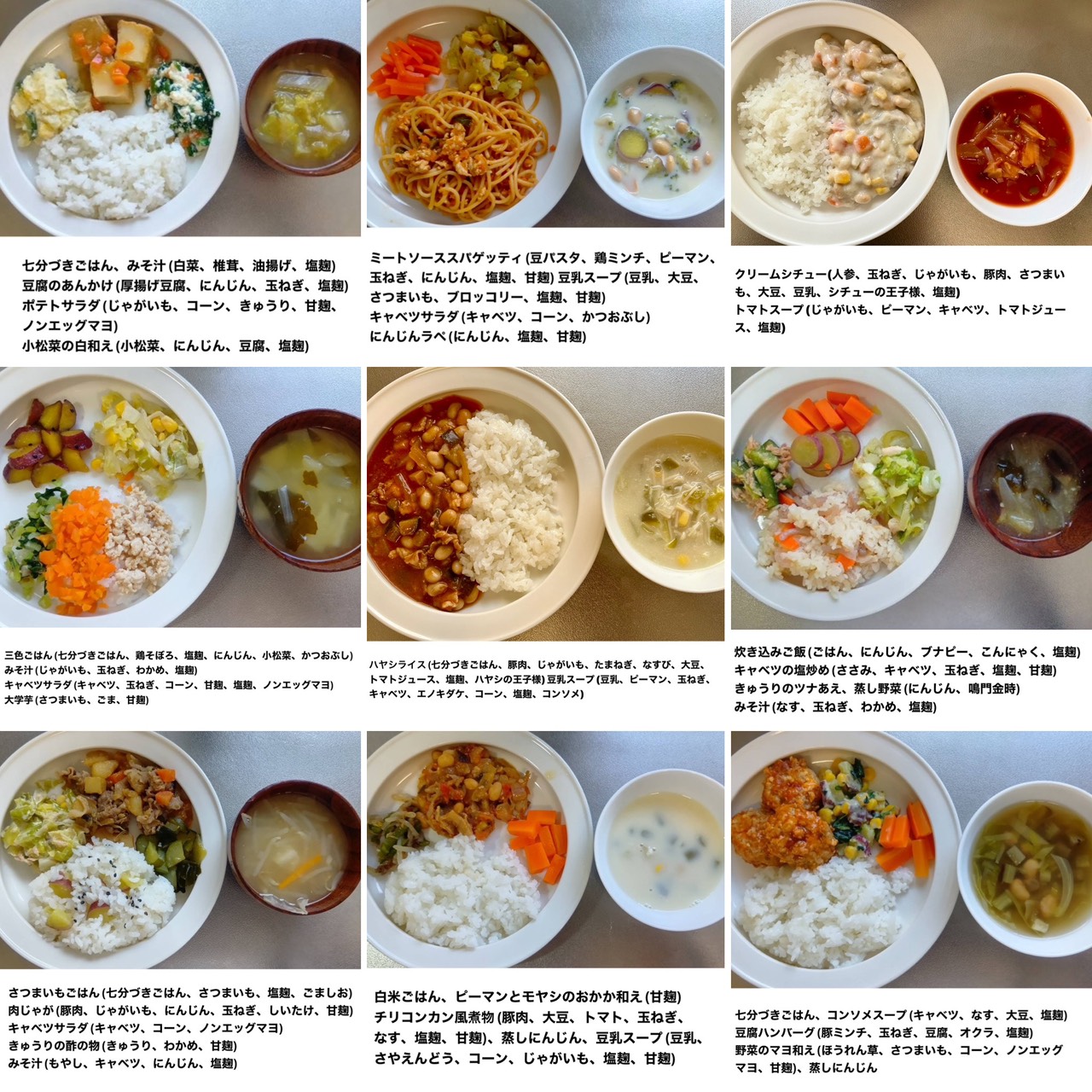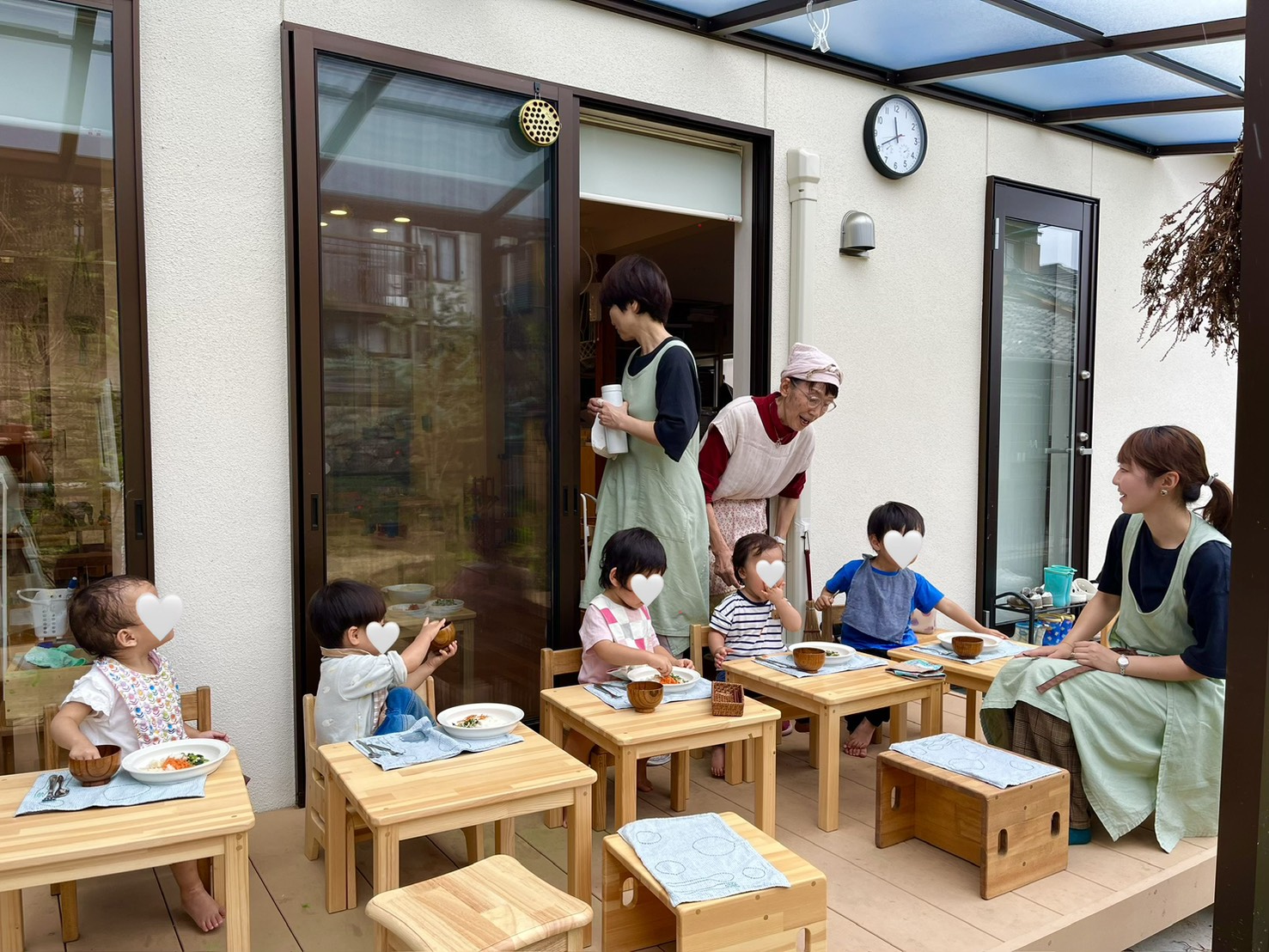- 将来、子ども達が自ら食材を調達し、調理し、良い食事を摂ることが出来るようになること
- 自己肯定感の向上
他者のために活動することで、子ども達は自分が社会に貢献する喜びを味わいます。3歳以下の子どもはしばしば「小さくて何もできない」と扱われるため、必要とされている感覚を通じて有用感を感じ、自信に繋がります
- 社会性の発達促進
共同で配膳し、一緒に食事することで、子ども達の社会性の発達を促します。食事中に子ども達は大人と一緒に過ごします。「いただきます」と食事の挨拶をしたり、物を取る時に「取ってください」と声をかけたりと、様々なマナーを自然に学びます。何かを強制せず、食事の時間は楽しくリラックスしたものに保ちます。
- 文化を継承すること
日本の行事に合わせた食材や季節ごとの野菜などを通して、また箸の使い方や食べ方の作法を見て、子ども達は日本文化を自然な形で継承していきます。
- 食材を理解する
子どもは切って形を変えた食材を目にすることが多いため、調理前に食材を丸ごと見せ、「野菜とは、食材がどういうものか」を認識します
- 調理活動への子どもの参加
子どもの運動の発達を観察し、適切な道具を与え、できる活動は子ども達が自ら行います。野菜をちぎったり、豆を房から取ったり、米を洗ったり、配膳をしたり、皿洗いをしたりと、子ども達が出来る活動は多岐にわたります。
- 数学的感覚を身に着ける
料理を通して、数を表す言葉や量(例:2 カップの米、塩1 つまみ、玉子2 個)や、箸は2 本で1 膳、お休みの子のテーブルには何も置かない(0 の概念)などを通じて、数学的感覚を経験します。



- Enable children to choose, cook, and enjoy their own nutritious food in the future.
- Boost self-esteem:
By doing something for someone, children experience the satisfaction of contributing to society. Young children, often treated as incapable due to their age, gain valuable experiences of being needed, leading to a well-founded sense of confidence.
- Preserve culture:
Children learn about ingredients and seasonal vegetables related to Japanese cultural events. They also learn the proper use of chopsticks and eating etiquette, naturally inheriting the beauty of Japanese culture.
- Understanding ingredients:
Children recognize what vegetables and ingredients are by seeing them whole before cooking.
- Participating in cooking activities:
Children use suitable tools according to their motor development. Activities include tearing vegetables, removing beans from pods, washing rice, setting the table, and washing dishes.
- Expanding vocabulary in Japanese and English:
Through food activities, children naturally expand their passive and active vocabulary in both Japanese and English. For example, the names of ingredients and kitchen utensils, action words, and descriptive words.
- Developing a mathematical sense:
Cooking activities involve words and concepts related to quantity, such as "2 cups of rice," "a pinch of salt," "2 eggs," and experiencing the concept of zero, by using empty dishware.



